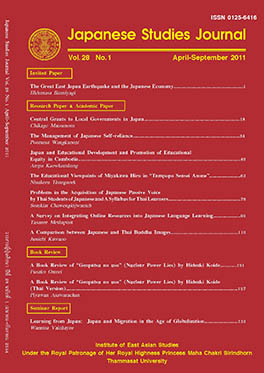The Great East Japan Earthquake and the Japanese Economy
Keywords:
Great East Japan Earthquake, Nuclear accident, Supplementary budget, Revival demand, Electricity shortage, Rise in electricity chargesAbstract
The Great East Japan Earthquake was a compound of the earthquake, the tsunami,and the accident at the Tokyo Electric Power Company Fukushima Daiichi Nuclear PowerPlant. It has been the greatest national crisis for Japan since her defeat in World War II. Theaccident at the nuclear power plant will take a long term to resolve.The personal suffering and material damage cost due to the earthquake and tsunamiwere on an unprecedented scale, as natural disasters in modern times. The number of deadand missing persons exceeds twenty thousand, and the cost of damage to stock is presumedto amount to $211.3 billion. It is expected that the damage due to the accident at the nuclearpower plant, which has not been settled, will be an immense amount.Restoration and revival demand is expected to have the effect of pushing up theeconomic growth rate even though the Japanese economy was depressed in the fi rst and thesecond quarter of 2011. The trend in the economy will depend on the boosting effect of therevival demand, as well as the effect on business of the power supply shortage and a risein electricity charges. In particular, developing an energy policy which balances effi ciency,safety, and the environment is a pressing issue.The Great East Japan Earthquake is the greatest challenge for the economy in postwarJapan, and her economy will be determined by the way the country fi ghts back againstthis challenge. We should assume that this is the turning point for the construction of a newJapanese economy.Downloads
Download data is not yet available.




